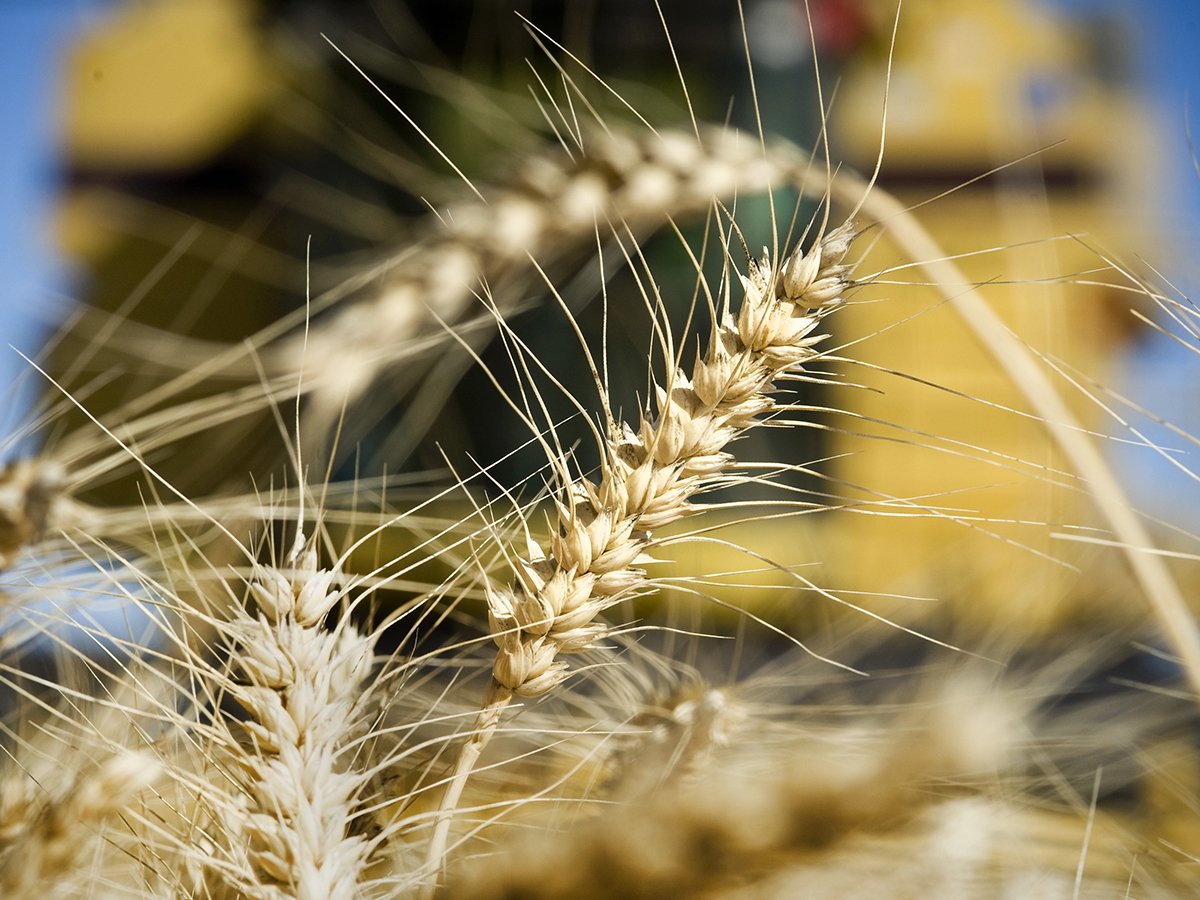David MacKenzie was encouraged by a survey that shows Manitoba’s vegetable and potato growers plan to increase the acres they have under irrigation.
MacKenzie is director of operations for Midwest Food Products Inc., one of the largest buyers and processors of potatoes in the province.
An increase in irrigated potato acres would add to the assurance of a reliable spud supply for the company’s processing plant at Carberry, Man.
“It would certainly be great for us,” said MacKenzie, in an interview last week. “It would match our tentative plans for expansion.”
Read Also

European wheat production makes big recovery
EU crop prospects are vastly improved, which could mean fewer canola and durum imports from Canada.
The survey, done on behalf of the Association of Irrigators in Manitoba, showed that Manitoba farmers plan to irrigate an additional 43,438 acres in the next three to five years.
That would be a 56 percent increase over the number of acres irrigated in the province last year.
Almost three-quarters of that increase, 32,039 acres, would be in irrigated potatoes.
Larry McIntosh, president and chief executive officer for Peak of the Market, was also enthused about survey findings.
His company markets the lion’s share of vegetables grown in Manitoba for the fresh market.
“It’s certainly an investment in the future of the industry,” he said of the projected rise in irrigation. “There’s no doubt about it.”
Irrigation capability has become part of the criteria for growing potatoes under contract with the province’s two largest potato processors, Midwest Food Products and McCain Foods.
By irrigating crops, producers offset the risk of not having enough moisture during the growing season. That lends itself to higher yields at harvest time.
Part of the hike in the irrigated acres is expected from vegetable and potato growers shifting fields out of dry land production.
But the survey also suggests producers want to add substantially to the amount of land used for growing potatoes.
Industry observers say that any large hike in potato production would have to be matched by an expansion of existing potato processing plants in the province – or the arrival of another major processor.
Midwest Food Products and McCain Foods both completed major expansions of their processing plants in Manitoba during the mid 1990s. Both plants supply the french fry market.
While Midwest Foods, co-owned by Nestle Canada and Simplot, has studied further expansion in Manitoba, McCain Foods has been busy with expansion elsewhere in Canada and in other countries.
Part of that expansion included the construction of a new potato processing plant in Alberta, the doubling of capacity at a plant in Maine, and the recent announcement that it will build a new plant in the same American state.
A McCain spokesperson said if more capacity is needed in Western Canada to satisfy the french fry market, a likely location would be the new plant near Coaldale, Alta.
“It’s our newest and it was built to be expanded, if and when that becomes necessary,” said Scoop Fredstrom, in an interview from the company’s international headquarters at Florenceville, N.B.
Room for expansion
Doug Smallwood, manager of the Association of Irrigators in Manitoba, said there is ample land to grow more potatoes in Manitoba. There is also adequate water, although there are some areas where that resource has been fully allocated.
“If a processor does expand, the producers would be interested in putting more irrigated acres in.
“They’re prepared to make the investment.”
However, not everyone shares the excitement about the province’s potato industry.
Rod Waterhouse grows 450 acres of potatoes near Carberry. He said the price he gets for his potatoes has not kept pace with the rising costs of growing the crop.
“You basically put your whole operation on the line every time you put potatoes in the ground and hope that nine months later you’re able to haul out enough to pay your bills.”
Waterhouse sells his potatoes under contract with Midwest Food Products. He said the prices paid to producers are the lowest in North America.
He would gladly opt out of growing potatoes, he said, if he found a buyer wanting to take on the venture.
“If someone came along with the right financial package for me, I’d be done.
“There’s too much risk involved.”















